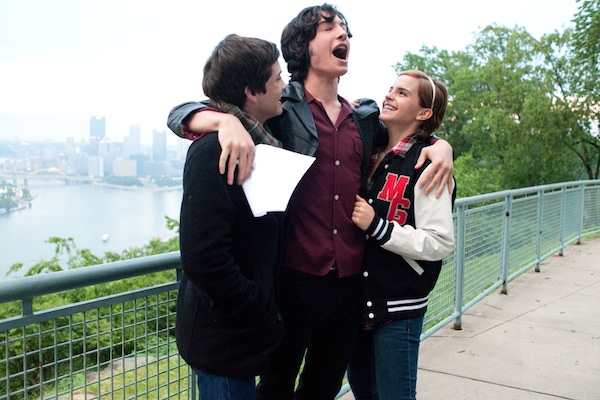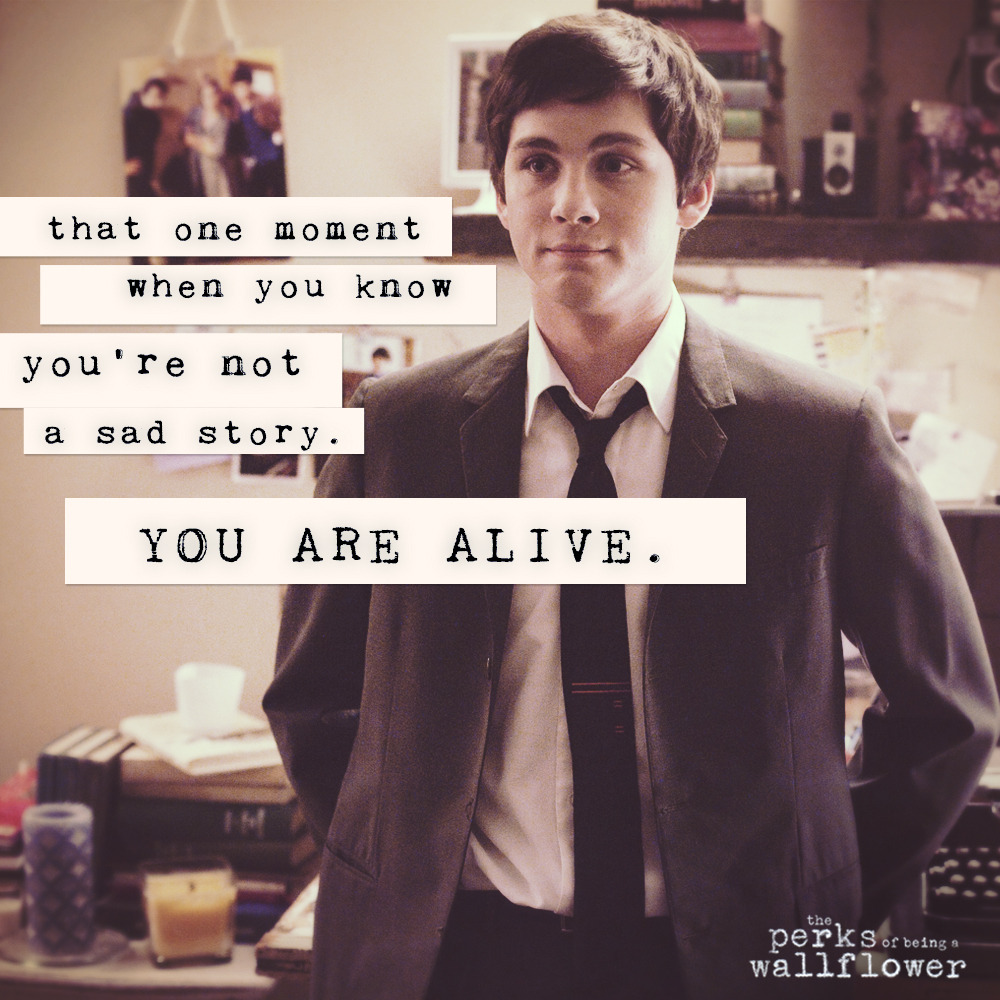 |
| photo from Perks of Being a Wallflower Facebook Page |
One of the problems of novels being adapted into films is
how the story becomes different once they hit the big screen. You’ll end up
asking if the film is really based on the novel or they just used the name of
the novel and to attract more audience. I am not saying these films are bad,
but I think they should not be called film adaptations because the stories become
different. But Perks of Being a Wallflower is not like that. Of course the film
adaptation of Perks is not totally the same with the novel. There are minor and
major changes in the film, but those changes did not affect the totality of the
story. Given the time constraints and the aim for a favorable rating, those
changes are understandable. I guess Perks of Being a Wallflower movie is what
it is because the author, rather than asking someone else to interpret the
story for the big screen, he did that himself. Stephen Chbosky, the author of
The Perks of Being a Wallflower is also the screenwriter and director of the
film adaptation. The Perks of Being a Wallflower is one of those film
adaptations that still rings true to the story it was based on.
 |
| Logan Lerman as Charlie (c) Perks of Being a Wallflower Website |
The Perks of Being a
Wallflower is a story about an introverted and emotionally unstable Charlie
(Logan Lerman), who is starting his freshman year in high school. In the book,
the story unfolds through his letters to his “friend” whose name was never
revealed which I like because it adds mystery to the story. His letters to his
friend are really personal, which led me to think that maybe there is no friend
he is writing letters to, that maybe it is Charlie’s diary. In the film, he still
writes letters to his friend, but the story unfolds through the natural way of
narration, which I also like because it will be a total
disaster if the whole movie unfolds through Charlie’s narration of his letters
like how it happened in the book and also because we are able to see more of his
friends, his interactions with them, and how things happen outside of
Charlie’s mind.
In the story, Charlie
was having a hard time in high school, and then he met Patrick (Ezra Miller)
in his Shop Class. In a football game, he saw Patrick then he sat next to him, then
later he met Patrick’s step-sister, Sam (Emma Watson).
 |
| L - R Logan Lerman as Charlie, Ezra Miller as Patrick, Emma Watson as Sam photo from She Knows Entertainment |
That’s how Charlie
found where he belongs, and met the other
troubled and free spirited kids he became friends with. I like how each of the
characters have their own charms and stories. Like how Alice steals jeans even
if she’s rich and how her friends do not judge her. How Mary Elizabeth is
bossy, opinionated and rocks a weird hairstyle. How Patrick does not like to be
serious, who is openly gay that has a secret relationship with a popular kid, and
how Sam is the “bad girl” who tries to turn her life around. There is so much
depth in their portrayal that I still see Charlie in Logan Lerman and Sam, not
Hermione, in Emma Watson. Those raw
emotions these people radiated to the audience are so deep that I am sure I would
not forget them anytime soon.
I love how Perks bravely tackles about breakups, heartaches, sex, drugs,
alcohol, homosexuality, homophobia, depression, incest, suicide, live
performances of The Rocky Horror Picture Show and other misfit experiences of
young people. What makes this story special is that it does not glamorize these
things, but is being true to the fact that these things are real and they
happen. Though I did not experience those misfits Charlie did, this is one of
those stories I can relate to. I am an
introvert and a wallflower myself. I am, most of the time unnoticed. I a m quiet.
I had experiences of feeling like an outcast and later finding where I belong. Even if I see things, I just
pretend I don’t. I understand. I also had a teacher who became a friend and a
confidante. There was a scene in the movie where this teacher was asking
questions to the class, though Charlie knows the answers, he does not
participate. That happens to me most of the time because I don’t really like to
participate. I write. I also don’t understand why teens wear letter jackets
when it’s 98 degrees outside. I love how it is fictional, yet the story is
realistic, honest, and personal.
 |
| Sam's tunnel scene photo from Courier Press |
I like the different angle shots in the tunnel scenes, and the fact that it symbolizes "change" or "rebirth", the message it sends that you can change, that you just have to do it. I am no expert in cinematography but I know the cinematography was not done poorly. I like how the church scenes became the avenue to change scenes smoothly. I would like give kudos to Stephen Chbosky for being such a great story teller, for choosing the perfect ensemble, and for staying true to the novel but at the same time made use of the advantages of visual presence of films. The film’s music score and soundtrack gives a whimsical feel into the film. Plus, I like The Smiths. The writing is so true
that the conversations of the characters are the kinds of conversations that
actual teenagers share. It is not overly dramatic and yet, still able to evoke
emotions.
 |
| photo from The Perks of Being a Wallflower Online |
The best part of the
movie for me is how at first you may think that the story is just about an introvert
who is trying to fit in. But as the story progresses, it reveals more of
Charlie and the other characters. Charlie, the good kid then, had his experiences
in bad things such as drugs and almost getting caught making out. Charlie also
revealed about the suicide of his best friend, Michael, as well as the story of
his most favorite person in the world, his Aunt Helen and why he blames himself
for her death which I thought are the only reasons for his depression. Until
the major turn of the plot happened. It is when it was revealed that Aunt Helen
molested him.
It is good to see a
film that inspires you. Charlie had experience so much at such young age and it
is good to see an ending where the protagonist tries to get back on his feet,
forget about the bad things and start anew. It is good to see a film that makes
you feel that the story is your story. At the closing scene Charlie said: “I can see it. This moment when you know you
are not a sad story. You are alive…” I feel the same. And lastly, it is
good to see a film that changes you. When Charlie said he might be busy trying
to participate, I know I will do the same.




No comments:
Post a Comment